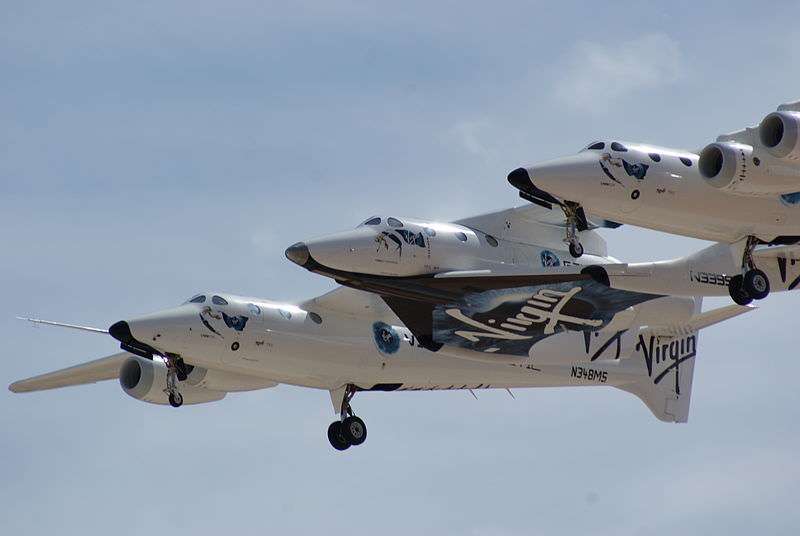FAA the Last Roadblock For Space Tourism

An increasing number of average people—non-astronauts—might finally have a shot at viewing the earth from suborbital space. Virgin Galactic wants to begin boarding space tourists SpaceShipTwo as early as 2014. According to CBC News, The U.S. Federal Aviation Administration is the last major impediment. It has not presented the suborbital spaceflight company with a commercial operator's license.
According to CBC News "this little document is the final piece of the commercial space travel puzzle that Virgin Galactic began assembling in 2004." It's a critical piece. "Without it, only test-flight personnel like former astronauts and military pilots can fly aboard SpaceShipTwo, the most recent evolution of the company's supersonic craft."
Virgin Galactic sent in a license application to the FAA's Office of Commercial Space Transportation in August of 2013 and expects some sort of a response by February. But the FAA's mouth is shut until then. Optimists are eyeing the approaching deadline. Stephen Attenborough, the commercial director of Virgin Galactic, is "very confident the approval will come within the next few months." But other experts say, don't count on it.
"They don't want to endanger the space-farers or the public, and they can't let the industry get started and then have a Titanic-like scenario that puts an end to it all in the eyes of the public" says Dirk Gibson, an author of several books on space travel told CBC News.
In 2012 the U.S. Congress extended a suspension on regulations. This gave spaceflight companies room to breathe. But it also this means safety rules won't be drawn up until October 2015. Experts are worried that lax safety rules will facilitate an accident, and that if an accident does occur, ongoing interest in commercial flights will dampen.
But demand is pretty high. Already, 700 people have ponied up $250,000 for the experience. Virgin Galactic founder Sir Richard Branson is very confident the spaceplane is safe. He and his two adult children plan to board the first flight.
In a November 2013 Reason article, Competitive Enterprise Institute space business consultant Rand Simberg compares uncharted space travel to preceding frontier explorations. "No frontier has ever been explored or opened by making safety the highest priority" he explains. Simberg favors a system based on informed consent. Participants should be allowed "to make their own assessments of danger versus reward, just as they do in other hazardous activities such as sky diving, free diving (which kills a couple percent a year), wing-suiting, and mountain climbing" he argues.
If the FAA doesn't approve the license this time around, Virgin Galactic will persist. Attenborough told CBC News, "Of course, if we fail to get the licence, there will be a reason and we will address that reason and keep moving forward."
